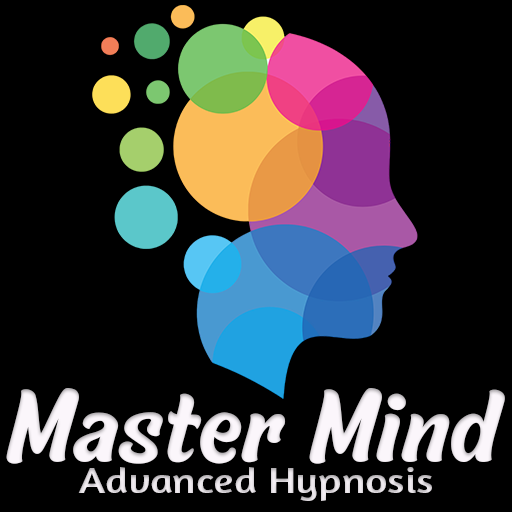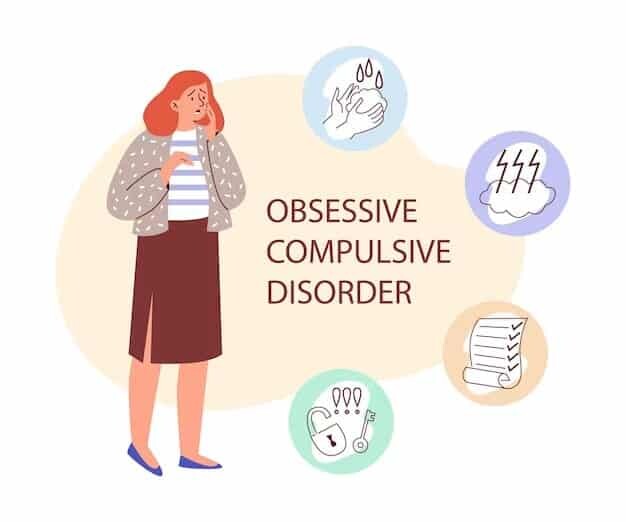Obsessive-compulsive disorder (OCD) is a disease that affects many people. It involves intrusive thoughts and repetitive behaviors. Obsessions and compulsions can be disturbingly distressing, interfering with normal life. Although traditional treatments such as cognitive-behavioral therapy (CBT) and medication have proved helpful for many, there is increasing interest in the use of hypnosis both as an alternative treatment to OCD and at least a complementary one. In this article we shall consider the possible application of hypnosis to OCD and whether it can help individuals open their minds.
Understanding OCD: A Complex Disorder
To understand the potential of hypnosis for OCD, we first need to clarify what it is. Obsessive-compulsive disorder (OCD) is an anxiety-related illness that entails patients having unwanted thoughts or obsessions and repeating certain actions, known as compulsions. Fear of contamination, doubts about safety, and intrusive thoughts are the most common. A compulsion typically involves repetitive actions such as washing hands or checking to see if one has completed a particular task.
Genetic, neurologic, and environmental factors are thought to play a role in the development of OCD. It can appear at any age, but it usually develops in early adulthood. The disorder can seriously affect an individual’s quality of life, often leading to distress and inability to carry out day-to-day tasks. It may also lead to social problems or reduced performance at work.
Traditional Treatments for OCD
Traditionally, OCD has been treated with a combination of cognitive-behavioral therapy (CBT) and medication. CBT helps individuals identify and challenge irrational thoughts and beliefs. It gradually exposes them to situations that cause their obsessions, teaching them healthier coping mechanisms. Medications, including selective serotonin reuptake inhibitors (SSRIs), can regulate brain chemistry and reduce symptoms.
Although these measures have helped many, others may still suffer from chronic symptoms or seek different ways to cope with their OCD. This is where hypnosis comes in, an alternative approach to treatment that may very well be transformative.
The Power of Hypnosis: An Entrance to the Subconscious
Hypnosis is also often misleadingly associated with stage performances or mind control. However, in a medical setting, hypnosis is non-threatening and involves cooperation between the subject and therapist. It allows subjects to reach their subconscious mind so as to plant seeds of positive change. It’s a state of intense concentration and ease, like daydreaming or disappearing into an intriguing book.
Under the guidance of Master Saghafi, an individual is ushered into a trance during hypnosis. But this letting go allows you to enter the subconscious mind where long-held attitudes, feelings, and motor skills reside. Through tapping into the subconscious, people are able to explore the origins of their OCD and change their mindset and behavior.
Hypnosis for OCD: A Holistic Approach
Hypnotherapy, the use of hypnosis in a therapeutic context, offers an alternative and comprehensive approach to treating OCD. By using the power of suggestion, visualization, and relaxation techniques it goes to solve the core issues that underlie OCD symptoms. Hypnotherapy can be used alone or in combination with CBT.
Breaking the Cycle of Obsessions and Compulsions
Breaking the cycle of obsessions and compulsions is one of hypnotherapy for OCD’s primary objectives. Hypnosis can help people understand the root of their triggers and learn how to separate themselves from obsessive thoughts. This detachment helps them to fight back against the irresistible urge toward compulsive activities and gradually diminish their reliance on repetitive action as a way of relieving anxiety.
Rewiring the Brain: Creating New Neural Pathways
Neuroplasticity, the brain’s ability to adapt and form new neural connections, is a critical element in hypnotherapy for OCD. Thus, through hypnotization one can actively restructure the brain in favor of a better way to think. This process weakens the neuro-pathways associated with obsessions and compulsions while strengthening those that promote well-being and resilience.
Addressing Underlying Emotional Causes
Although particular cues often bring out OCD, there are generally emotional factors at work that maintain it. The emotional causes, unresolved trauma or anxiety, and a low self-esteem may be discussed in hypnotherapy. In doing so, people can achieve deep healing and experience long-term relief from their OCD symptoms.
Empowering the Individual: Building Resilience and Self-Efficacy
By changing the focus from limitations to strengths and internal resources, hypnotherapy gives people power. Through guided imagery and positive suggestions, people can draw upon their own inner strength to gain a feeling of power over themselves. They learn to trust in their ability to conquer OCD and navigate difficult situations with poise.
Relaxation and stress-reduction tools
Stress and anxiety often make OCD symptoms worse, making it hard for individuals to control their obsessions or compulsions. Hypnotherapy can arm people with practical means of relaxation and stress relief, giving them a feeling of inner tranquility and psychological balance. In daily life techniques such as deep breathing, guided visualizations, and self-hypnosis can be used to combat anxiety before it leads one further down the slope of OCD.
The Potential of Hypnosis for OCD: Insights from Research
Although research on hypnosis for OCD is limited, there is increasing evidence that it holds promise as an adjunctive therapy. A Journal of Consulting and Clinical Psychology study, however, has shown that hypnosis added to CBT can greatly improve OCD treatment outcomes. Combined with hypnosis, CBT reduced the number of obsessions and compulsions and their associated distress, indicating that this may help to make a more effective treatment.
Another study, published in the Journal of Nervous and Mental Disease, researched hypnosis as a treatment for OCD-related contamination fears. Results revealed that hypnosis significantly reduced contamination-related fear and anxiety, as well as the severity of overall symptoms. These results provide backing for hypnosis’ prospect as an effective method to combat particular OCD symptoms and anxiety.
Although more research is needed to determine the effectiveness of hypnosis for OCD, these studies can provide us with some clues about its possible role in treatment.
Finding a Qualified Hypnotist: Trusting the Process
When considering hypnosis for OCD treatment, it is important to find a skilled and experienced hypnotist. Search for a who specializes in OCD or anxiety disorders, and one with experience using scientifically proven treatments. Master Mind Advanced Hypnosis under the direction of Master Saghafi will make you feel safe and at ease, customize the therapy to your circumstances, and then expertly guide you through it with empathy.
Hypnosis is very much a collaborative experience and needs your active participation. You must both explore the causes of any negative thought process or behavior and be able to transform them into something positive. Believing in the process and following your own path, you can activate what’s inside your head to undergo a metamorphosis that builds strength.
Conclusion: Using the Mind to Cure OCD
OCD can be a difficult and disabling illness, yet it needn’t dominate your life. With hypnosis and hypnotherapy, you can harness the ability of your mind to let go of obsessions or compulsions so that you may live more fully. Hypnosis takes a holistic, empowering approach to OCD treatment by focusing on underlying emotional causes and working with the brain’s own pathways. Begin now to explore hypnotherapy as an ancillary treatment for OCD along with traditional treatments, and launch yourself on a journey of rebirth from the clutches of this disorder. Don’t forget, that you have the power inside of yourself to break free and choose change for the better.







